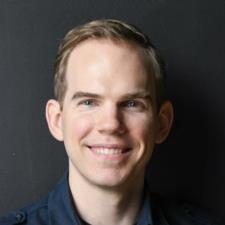
Mohamed R. answered • 02/03/21
Bachelor degree in English with experience in philosophy tutoring.
Empiricism is the approach that people acquire knowledge through experience and observation. Hume, lock and Berkeley are the most known Empiricists. Another most famous form of Empiricism is what is known as Logical Empiricism or Logical Positivism. Although Empiricists have been able to address some philosophical issues, they have also faced some criticism, mainly from Popper, Ruhn, Dilthey, Kant, among others.
Hume, known as a skeptical Empiricist, distinguishes between facts and values, adding that we cannot reduce factual statements to moral statements. In that sense, Hume sees that moral judgements are driven by passions. For instance, anyone might think stealing is wrong simply because they feel or disapprove of stealing. Likewise, Hume views that morality makes us more concerned with self-pleasure and utility.
Kant refutes Hume's view of morality in its broader sense, considering morals as unique obligations that need to be highly regarded. Kant points out that Empirical morals differ from person to person, so they cannot be taken as standards for moral values, because if duty were grounded in feeling, morality would view some people more strongly than others, which does not comply with the universal nature of moral obligation.
Kant also refutes John Lock concept of "Tabula Rasa" stating that the mind is a blank slate that can be filled with imprints of experience. In this regard, Kant quotes, "percepts without concepts are blind."
Empiricism also faces critics from Popper, a rationalist who proves with his method known as "Falsification Principle" that Empiricism method relies solely on sensory experience and observation. That explains why Empiricists cannot mark a separating line between science and non-science (fake science). He added that for a theory to be scientific, it must be able to be tested and conceivably proven false. For instance, the statement “All swans are white” can be falsified by observing that there is also a black swan. He further supports this idea pointing out Europeans continually observed white swans for thousands of years before they came up to know black swans also exist.
Empiricists claim they objectively observe the world using their single method of experimentation/observation and induction. However, Kuhn rejected the idea that there exists a single method that applies to all science and could account for its progress. Kuhn argued that the development of science has not been uniform but has gone through different stages of normal and revolutionary stages in which theories have been replaced by other theories, mainly when the first ones are unable to explain the current scientific issues.
Dilthey is another philosopher who points out the limitations of an Empiricist approach. His critics are mainly directed to the Logical Positivists who limit philosophy scope to science. Dilthey, on the other hand, conceives philosophy task as articulating the overall aspects of human life in general. Following Hegel’s concept of “absolute spirit”, Dilthey defines philosophy as “an experiential science of spiritual phenomena that seeks to cognize the laws governing social, intellectual and moral phenomena”.
Despite the above critics showcasing the limitations of the Empiricist approach, some Empiricists, such as Hume and Lock, are still viewed as the greatest philosophers in history, due to their impact on neuroscience and behavioral psychology, among other fields.




